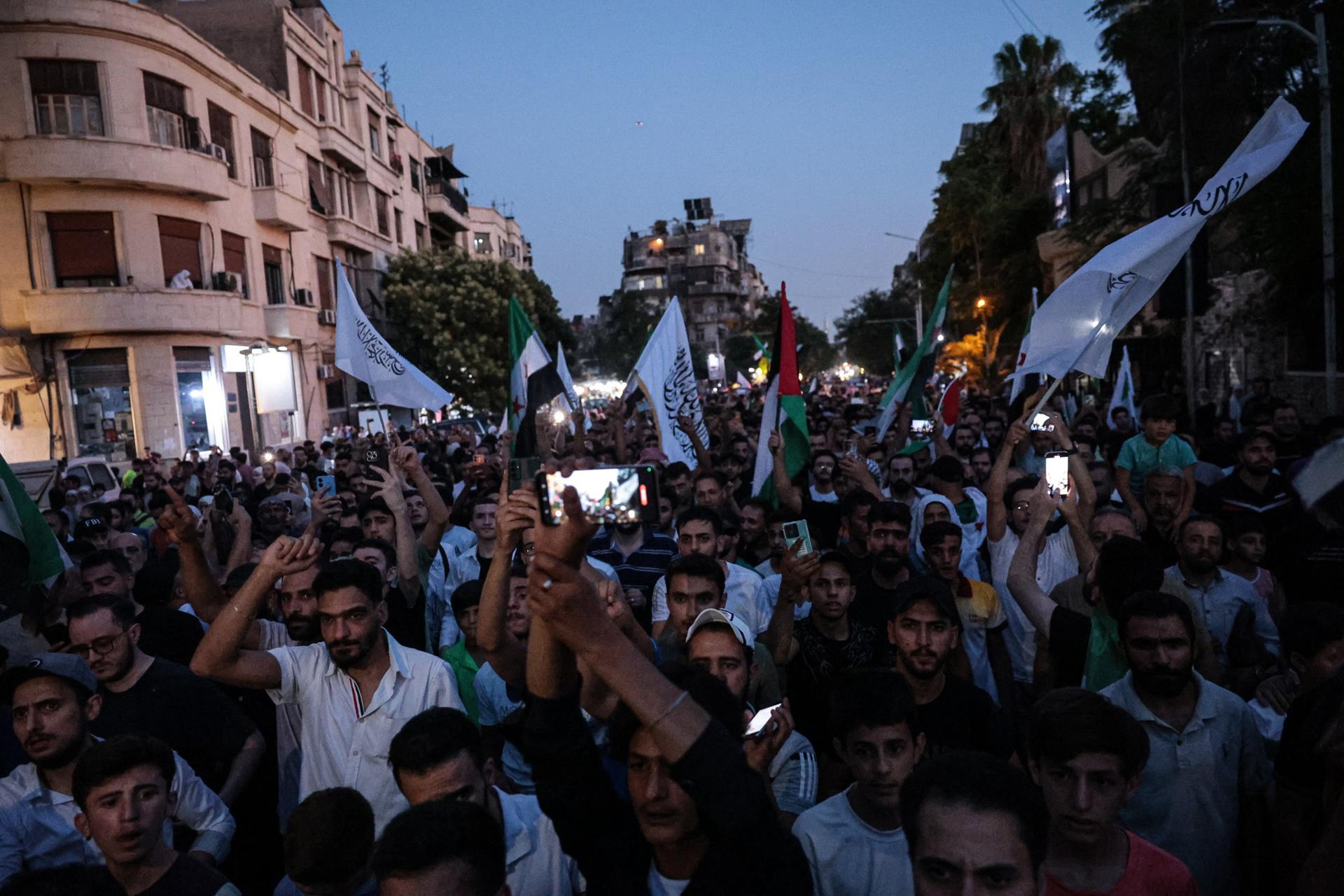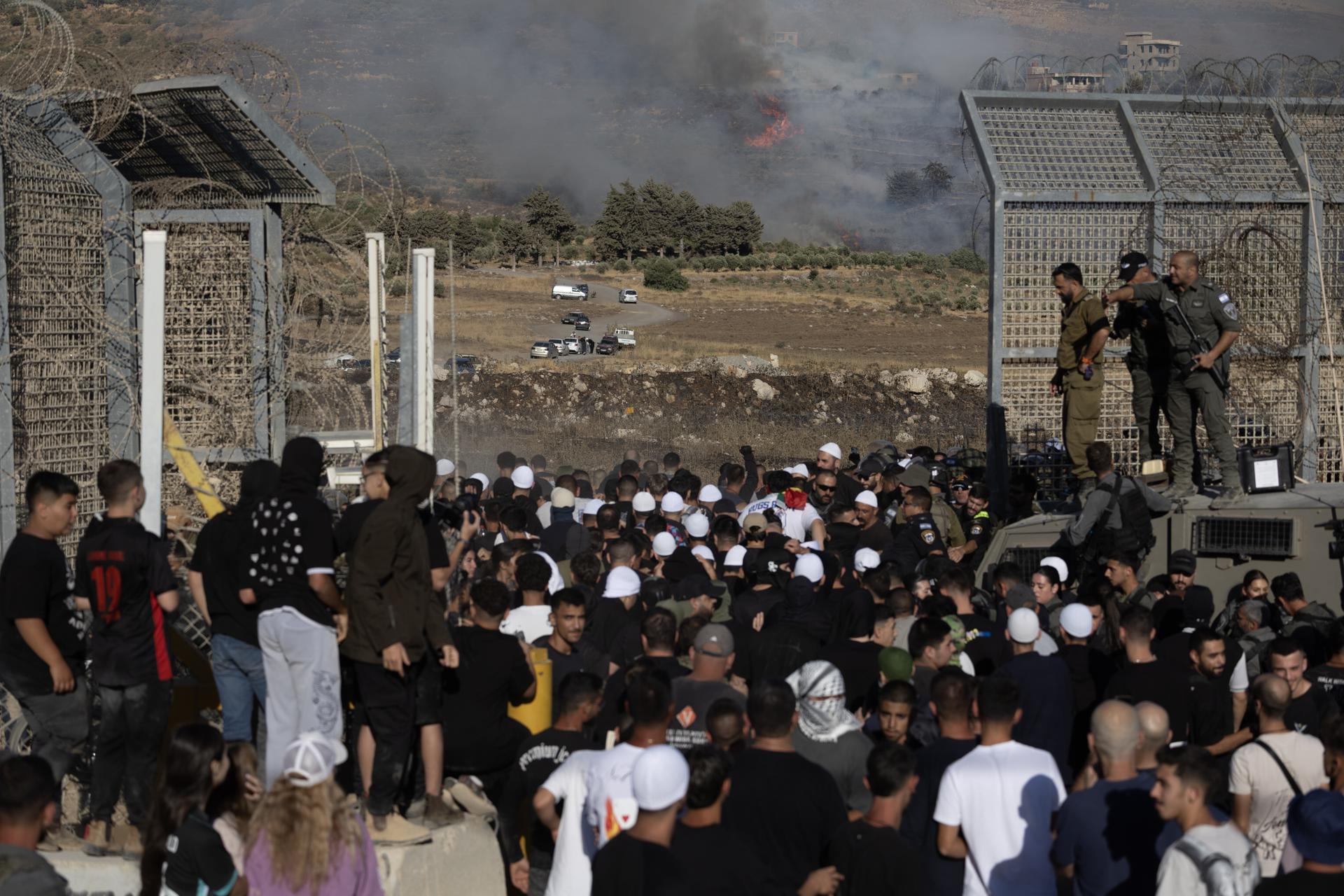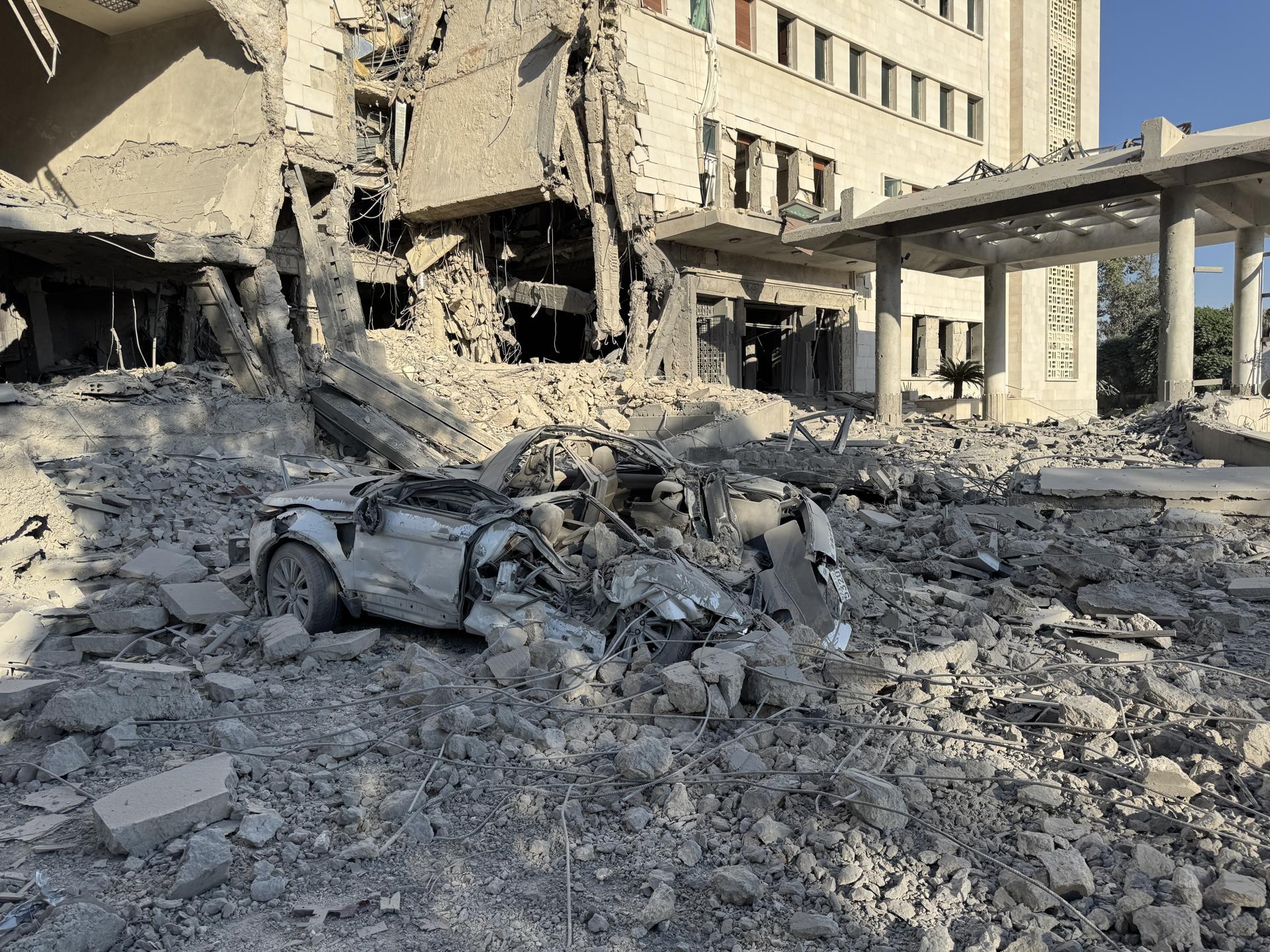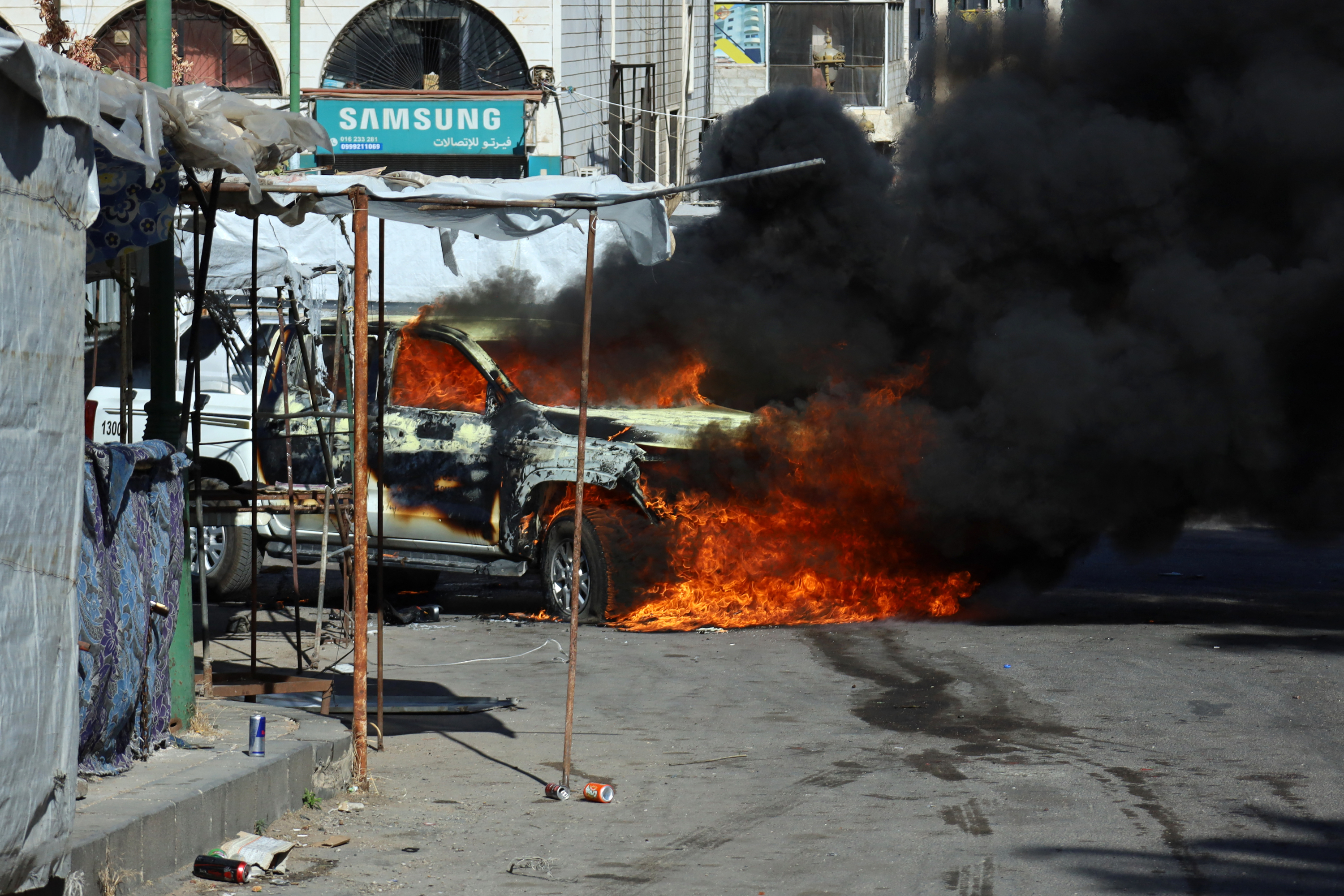'The new Syrian regime doesn't have control of the entire country': Former Druze colonel explains what's behind the escalating violence there.

The massacre of Druze civilians in the southern Syrian town of Al-Sweida by Islamists loyal to the new president, Ahmed al-Shara, and the subsequent Israeli bombing of its northern neighbor marked a turning point in both Syria's internal dynamics and its tense relations with the Hebrew state.
The Druze, it should be remembered, constitute a minority in the region, living mainly in Syria, Lebanon, and Israel. In fact, the majority of Druze living on Israeli soil are located in the Golan Heights, a region occupied by Israel since 1967. Their mother tongue is Arabic, they have a secret religion, and they were exiled from Shia Islam in the 11th century.
The killings began on Monday night. This is explained by the Druze's refusal to hand over their weapons to the new Syrian regime —which overthrew Bashar al-Assad and assumed power—convinced they will need them for self-defense. Islamists affiliated with the regime and Bedouin tribes also participated in the massacres. In total, these clashes have left around 600 dead, according to authorities.

Protesters in Syria protest against the Israeli attack. Photo: EFE
The story begins, without going too far back, in December 2024, when a group of armed militias, of various stripes but predominantly Islamists, managed to overthrow then-President Bashar al-Assad, an Alawite, an ally of Iran and therefore an enemy of the Sunnis. This ended 13 years of civil war, but did not truly stabilize Syria.
Amidst the diverse network of armed groups, lacking any clear cohesion or unity among them, Hayyat Tahrir a-Shams, the militia led by Ahmed a-Shara, also known as Abu Muhamad al-Joulani, who shortly afterward proclaimed himself the new president of Syria, emerged as the dominant force.
The main underlying problem was that a-Shara had been a member of ISIS and al-Qaeda, although he had left it years before. And the big question, when he started wearing Western clothing, was whether it was merely a disguise for someone who was still a jihadist, or whether he had truly changed.
When some 1,700 Alawite civilians were massacred months ago in coastal cities, then there were massacres of Christians and now of Druze. The central issue was whether Al-Shara had ordered them or whether the chaos in the country is such that each group does what it wants. What is clear is that the message of those responsible for the massacre was ISIS-specific, and the uniforms of troops arriving as part of the regime's forces often bore the insignia of the Islamic State.

Border between Israel and Syria. Photo: EFE
Israel has warned Damascus that it will not allow the massacre of the Druze in southern Syria, who are fellow believers and, in many cases, relatives of Israeli Druze, citizens of the Jewish state, and even members, at its request, of the Israel Defense Forces.
Israel quickly moved from warning to attacking both Syrian armored vehicles in Al-Sweida and regime targets in Damascus itself.
To analyze the situation, EL TIEMPO spoke with Wajdi Sarhan, currently deputy mayor of the predominantly Druze town of Mrar in Upper Galilee, northern Israel. He is preparing to form a new party to participate in the upcoming parliamentary elections and has 30 years of service in the Israel Defense Forces, where he rose to the rank of colonel.

Wajdi Sarhan, currently deputy mayor of Mrar, Upper Galilee. Photo: Private Archive
I can't give you any figures, but we're pretty sure it's hundreds, not dozens. In addition to the injured, we've received horrific videos and audio messages in which we hear women pleading for help, testimonies of rapes and murders of children. It's truly horrific.
Syria is on the other side of the border. We must make it clear that we are in control of the situation.
We have distant relatives in Syria with whom we haven't had much contact, unlike the relatives in Lebanon with whom, for years, when the "Good Fence" border crossing was open, we were able to meet. As an Israeli Druze, I thought back to October 7, the day of the Hamas massacre in southern Israel. That day, I donned the Israel Defense Forces uniform and enlisted in the reserves to go fight and defend the country. This time, when my Druze brothers were being massacred, I couldn't do it.
I feel your helplessness... Without a doubt. I am a citizen of the Jewish State. I am clear that on October 7th, everyone here remembered the Holocaust perpetrated by the Nazis during World War II. That crime, on another scale, was repeated that day. And now, again on another scale, this time in Syria.

Damage to the Syrian Defense Ministry headquarters after the Israeli attack. Photo: EFE
I think it was an irresponsible act; the main objective was simply to shock public opinion and the army, to awaken the prime minister and the defense minister to action. There were many things that could have been done in response to the understandable outcry in our society, but crossing the fence and running into Syria meant exposing themselves and the army to danger because the soldiers would have to pursue them and return them to Israel. They could be killed or kidnapped. That would have been part of the problem, not the solution.
What do you think of the Israeli reaction to the massacre and the attacks on regime positions? First of all, I think it's clear that here in the land of Israel, the cries of the Druze are heard, that they want to help us, and that the State of Israel feels an obligation to our community, which feels that our brothers are being massacred.
Furthermore, I believe this is also an Israeli interest par excellence, given the situation in Syria. Let's recognize that Ahmed al-Shara isn't really a president; he doesn't truly have an army or police force. Nor does he have control over the entire country. Therefore, Israel must act as a regional power, both for its security and as a matter of moral and ethical commitment. They couldn't stand idly by in the face of such an attack against a community that hadn't attacked anyone. On a regional level, let's remember that Syria has become a battleground between superpowers. Israel also can't allow Turkey to establish itself there.

Wajdi Sarhan, currently deputy mayor of Mrar. Photo: Private Archive
Without a doubt. Syria is on the other side of the border. We must make it clear that we control the situation , that we will not allow rebel militias of any kind to establish themselves in that territory. That area must be our sphere of interest and influence.
What do you think will happen in the next few days? Although it may sound strange, I'll tell you that I'm relatively optimistic. Leaders from around the world, as well as Israeli representatives, gave greater or lesser legitimacy to Ahmed al-Shara, a lifelong jihadist, which allowed him to give free rein to Bedouin, Iraqi, Kurdish, and all kinds of militias. But al-Shara hasn't proven himself a true leader who yearns for stability and peace. He's simply worn a tie and suit. Everything he's done so far is on the path to governing an extremist Islamic state.

A vehicle burns on a street after Syrian government forces withdrew from Sweida. Photo: AFP
When the Druze demanded a constitution that would show that there really is a leader, a regime, an army, and a police force, and that would involve everyone—Druze, Christians, and Alawites—al-Shara said no, that it would be done five years later. And domestically, it works like Iran. They don't accept infidels. I think that in the end, Israel will force all the rebels to reduce the intensity of their fire and leave the Druze of al-Sweida to take care of themselves . And returning to the question, my cautious optimism is that, through this terrible crisis of the massacre, it became clear what the truth is about al-Shara. The suit is a disguise. He remains an Islamist who cannot be trusted.
eltiempo

%3Aformat(jpg)%3Aquality(99)%3Awatermark(f.elconfidencial.com%2Ffile%2Fbae%2Feea%2Ffde%2Fbaeeeafde1b3229287b0c008f7602058.png%2C0%2C275%2C1)%2Ff.elconfidencial.com%2Foriginal%2Fc94%2F0cb%2Fae2%2Fc940cbae2cb2d5f8c754a137cdd1a23a.jpg&w=3840&q=100)
%3Aformat(jpg)%3Aquality(99)%3Awatermark(f.elconfidencial.com%2Ffile%2Fbae%2Feea%2Ffde%2Fbaeeeafde1b3229287b0c008f7602058.png%2C0%2C275%2C1)%2Ff.elconfidencial.com%2Foriginal%2F0c2%2Fc05%2Fdf7%2F0c2c05df7fe173773b74a78475696bce.jpg&w=3840&q=100)


